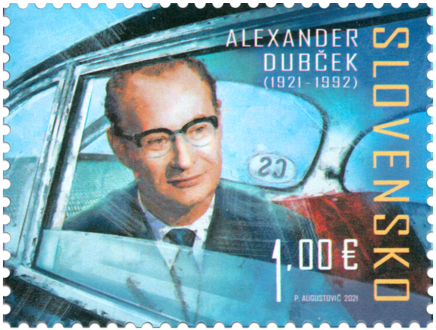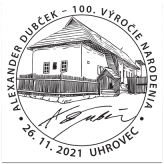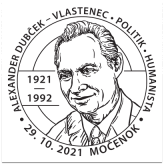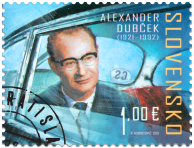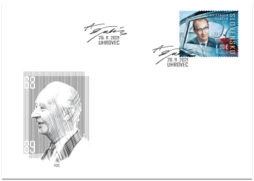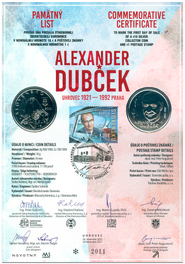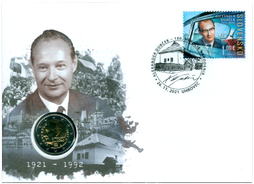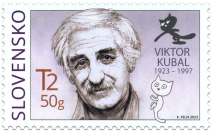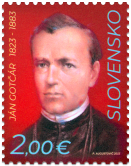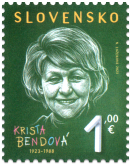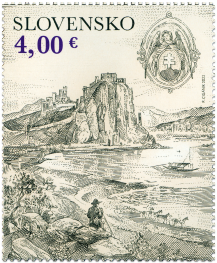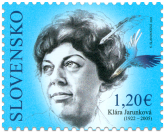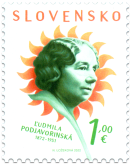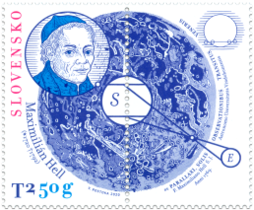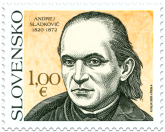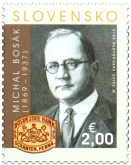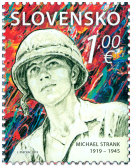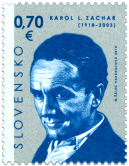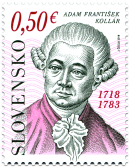754 Date of issue
26.11.2021 Face value
1.00 € Sell price
1.00 €
Alexander Dubček was born on 27th November 1921 in Uhrovec. He spent his childhood and youth with his parents in the USSR. They left their work there to return home before the Second World War. He joined the anti-fascist resistance and he and his brother Július fought in the Slovak National Uprising. In 1949 he started his career as a public figure and politician.
However, the political reality did not align with his original vision, he was sensitive to breaches of the law, ongoing judicial proceedings, and he was looking for solutions. The social crisis was maturing in Czechoslovakia. After he was appointed to the most senior party position, Alexander Dubček became a popular and trustworthy politician. He implemented democratic reforms in both the economy and social life however the Soviet politicians and marshals requested the reforms be brought to a halt.
Following the invasion by troops from the five states of the Warsaw Pact (21st August 1968) the country was occupied to halt the process of democratic reform. Dubček was gradually removed from all his positions of authority and was expelled from the party. This was followed by twenty years of discrimination and the restriction of his human rights.
After the collapse of the totalitarian regime in November 1989 he restarted his political activities, he was elected as the Chairman of the Federal Assembly in Prague, and he contributed to the formation of a new pluralistic society. He visited many European and other states to re-establish the contacts that had been severed and to restart cooperation. Everywhere he went he was received with respect and seen as a messenger of good will and hope.
During a business trip to Prague on 1st September 1992 he was involved in a tragic car accident, which resulted in his death on 7th November 1992. The modern Slovak history of the second half of the 20th century is closely linked to Alexander Dubček.
Alexander Dubček understood and implemented politics to serve citizens, with whom he had an affinity that was earned by his humane approach and moral values. The ideas and message of Alexander Dubček are still relevant today, encouraging us to foster humanism, friendship between people and nations, and politeness in politics, to which he introduced the fundamental values of civilisation and human virtue.
Ivan Laluha
Show less© 2024 POFIS - Postal philatelic service. All rights reserved

